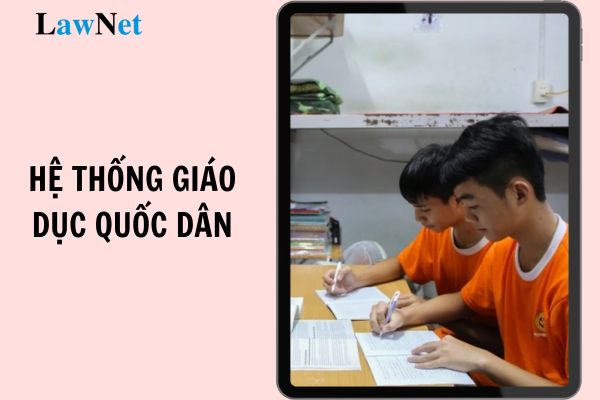Do reformatories belong to the National Education System of Vietnam?
Do reformatories belong to the National Education System of Vietnam?
Under Article 6 of the Education Law 2019, the national education system is defined as follows:
The national educational system
1. The national educational system is an open, transferrable educational system consisting of formal education and continuing education.
2. Educational levels and training qualifications of the national educational system include:
a) Preschool education including junior kindergartens (for children aged 03 – 36 months) and senior kindergartens (for children aged 3 – 5 years);
b) General education with primary education, lower secondary education, and upper secondary education;
c) Vocational education and training at elementary-level, intermediate-level, or college-level and other vocational training programmes;
d) Higher education with university education, master education and doctoral education.
3. The Prime Minister shall make decisions on the approval of the structural framework of the national educational system and the Vietnamese Qualifications Framework; stipulate the training duration, standards of each training level, the minimal learning quantity for qualifications of vocational education and higher education.
4. Within the scope of their duties and authorities, the Minister of Education and Training and Minister of Labour - War Invalids and Social Affairs shall provide for the entrance requirements of college-level and university-level pedagogical and health professions.
According to Article 91 of the Law on Handling of Administrative Violations 2012, the measure of sending persons to reformatories in Vietnam is prescribed as follows:
Measure of sending to reformatories
1. The sending to reformatories means a administrative handling measure applying to persons committing acts violating law specified in Article 92 of this Law aiming to help them to follow general education, apprentice, labor and have living activities under management and education of school
2. The time limit for application of measure sending to reformatory is between 06 months and 24 months.
Thus, reformatories belong to the national education system. Rather, a reformatory can be considered a compulsory educational institution established by the state for educating and reforming minors aged 12 to under 18 who engage in law violations but do not meet the threshold for criminal responsibility.

Do reformatories belong to the National Education System of Vietnam? (Image from the Internet)
Who will be sent to reformatories in Vietnam?
Under Clause 1, Article 92 of the Law on Handling of Administrative Violations 2012, amended by Clause 47, Article 1 of the Law on Amendments to Law on Handling of Administrative Violations 2020, the following persons will be sent to reformatories:
- Persons aged between 12 years and under 14 years who commit acts suspected to be extremely serious crimes defined in the Penal Code.
- Persons aged between 14 years and under 16 years who commit acts suspected to be very or extremely serious crimes defined in the Penal Code, except for those crimes prescribed in clause 2 of Article 12 in the Penal Code.
- Persons aged between 14 years and under 16 years who commit one of the acts prescribed in clauses 2 and 3 of Article 90 herein, and are already subject to the sanction of receiving compulsory educational services at communes, wards or towns before.
- Persons aged between 16 years and under 18 years who commit one of the acts prescribed in clause 4 of Article 90 herein which are not crimes, and are already subject to the
What are the disciplinary measures against students in reformatories in Vietnam?
Clause 1, Article 18 of Circular 49/2022/TT-BCA outlines the disciplinary measures against students in reformatories in Vietnam as follows:
Disciplinary measures and Principles
1. Disciplinary measures
a) Students violating the rules of a reformatory will, depending on the nature and extent of the violation, be disciplined by one of themeasures prescribed in Clause 2, Article 23 of Decree No. 140/2021/ND-CP;
...
Clause 2, Article 23 of Decree 140/2021/ND-CP states:
Reward and Disciplinary Regime for Students
...
2. Students violating the rules of a reformatory will, depending on the nature and extent of the violation, be disciplined by the school principal using one of the following measures:
a) Reprimand;
b) Warning;
c) Education in a private room not exceeding 05 days. Students subjected to education in a private room must write a self-criticism report and self-assess in front of their team, group, or class. During the period of education in a private room, students can attend cultural learning.
3. Decisions on rewards and discipline are recorded in student files.
4. Students violating the law may be subject to criminal responsibility depending on the nature and extent of the violation; if causing damage, they must compensate according to the law.
Students violating reformatory rules will, depending on the nature and extent of the violation, be disciplined through one of the following forms:
- Reprimand;
- Warning;
- Education in a private room not exceeding 05 days.

